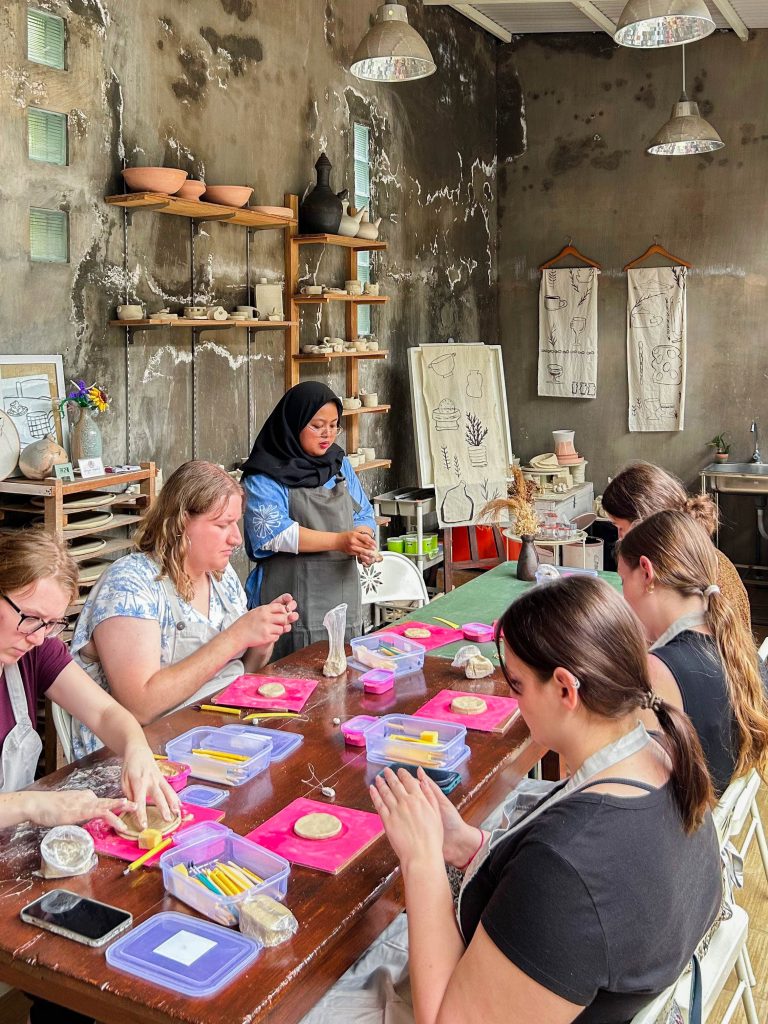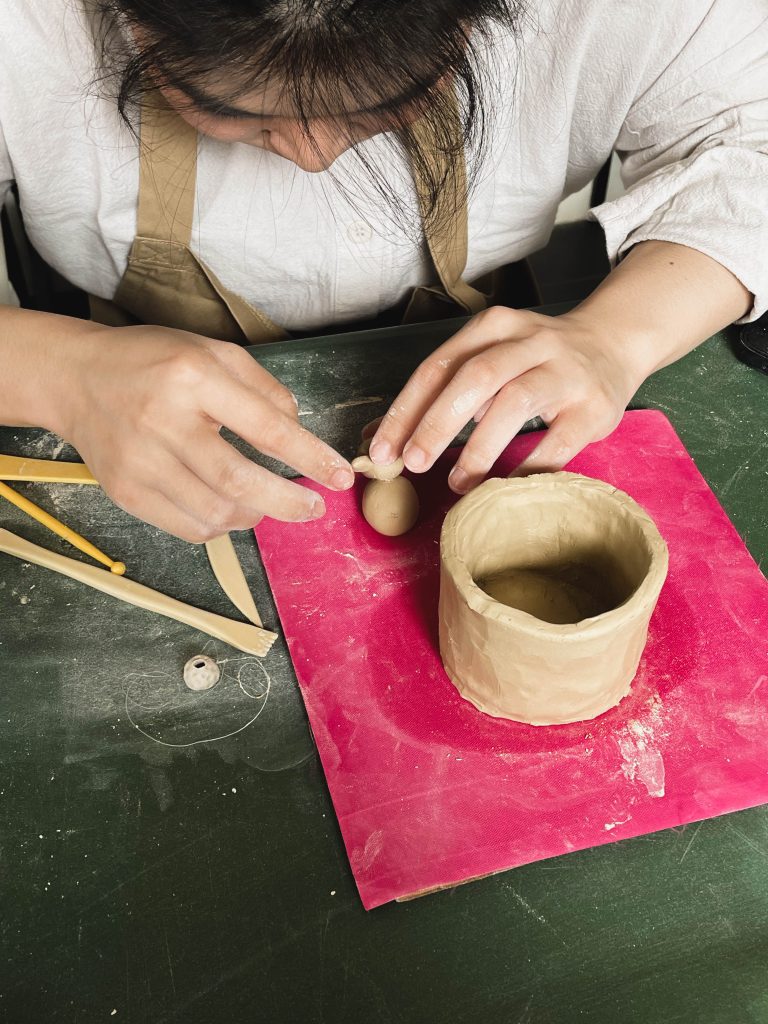In a corner of Batu City, East Java, Pable discovered a hidden gem that provides a place of recreation amidst the hustle and bustle of the city: Matahati Ceramic Studio. In the chilly air of Batu City, Pable was warmly welcomed by Matahati and chatted with the owners, Pak Muchlis Arif, and his wife, Ibu Capri Budijati, amidst their array of handicrafts, including cups, vases, plates, and more. Pak Muchlis graduated from ceramic crafts major, and his wife, Ibu Capri Budijati, a Visual Communication Design (DKV) graduate. Born to an artistic couple, their two children are currently studying fine arts and DKV.
Pak Muchlis Arif and Ibu Capri Budijati have always been crafty individuals. Before pursuing ceramic crafts, they both worked with waste paper, producing various products, such as notebooks, photo albums, and more.


Matahati began as “Tuku Keramik,” founded by Pak Muchlis Arif in 1993 in Batu City, right next to Warung Bethania Batu. This strategic location, situated in the heart of Batu, was not yet a tourist destination and was not yet crowded with visitors. Pak Muchlis Arif deliberately chose the most crowded area. Since 1995, Pak Muchlis Arif has frequently held solo exhibitions of his work. Later, the business was renamed “Batu Kecil Ceramic Gallery,” and finally, in 1997, it was renamed “Matahati Ceramic Studio.”
Over time, Matahati Ceramic Studio has three locations: Matahati Keramik (in front of Jatim Park 2), Studio Matahati Keramik (Batu), and Gallery Matahati Keramik (Kaliwatu). Each location offers exciting activities, such as Pottery Classes, but at varying scales. The pottery class started in their old studio in 2020-2021, but then closed due to COVID-19 and reopened afterward, finally establishing the studio they have today. Feedback and responses from visitors have been great and continue to increase, especially through word of mouth, as well as from customers who feel connected and loyal to them, often returning to the studio. They have been able to continue to grow organically as they are today thanks to the support of their customers.


Pak Muchlis Arif has dedicated his life to clay, believing it to be the most versatile raw material for craftwork because its accessibility is unmatched by other materials; it is inexpensive and available everywhere, especially in the East Java area. Having been involved in the creative industry for over 30 years, he believes that creative industry businesses can be developed into profit opportunities beyond goods; service output also needs to be considered. That’s how Pottery Class was born. Matahati not only sells finished products in the form of ceramic-based items such as plates, vases, cups, and so on, but also offers a service –Pottery Class, so that visitors gain more than just goods, but also a valuable experience.


Maintaining Matahati isn’t without its challenges. Some of them include how to stay relevant and relatable to customers. Furthermore, Matahati focuses on maintaining its business and striving for continuous growth. One of the most challenging aspects is positioning itself within the ever-changing trends and the ecosystem of Indonesia’s creative industry.


Starting with four employees, Matahati has now grown to accept 2-3 month internships with participants from various backgrounds, including vocational high school students (SMK) and even local and international university students. For Pak Muchlis Arif, this is a positive sign, as he feels compelled to share his knowledge of ceramic crafts with as many people as possible, especially the younger generation, so that Indonesia doesn’t fall behind other countries.
Ceramic crafts require tenacity and perseverance, something not everyone possesses. Matahati is not just a business, but also a testament to tenacity and determination.



